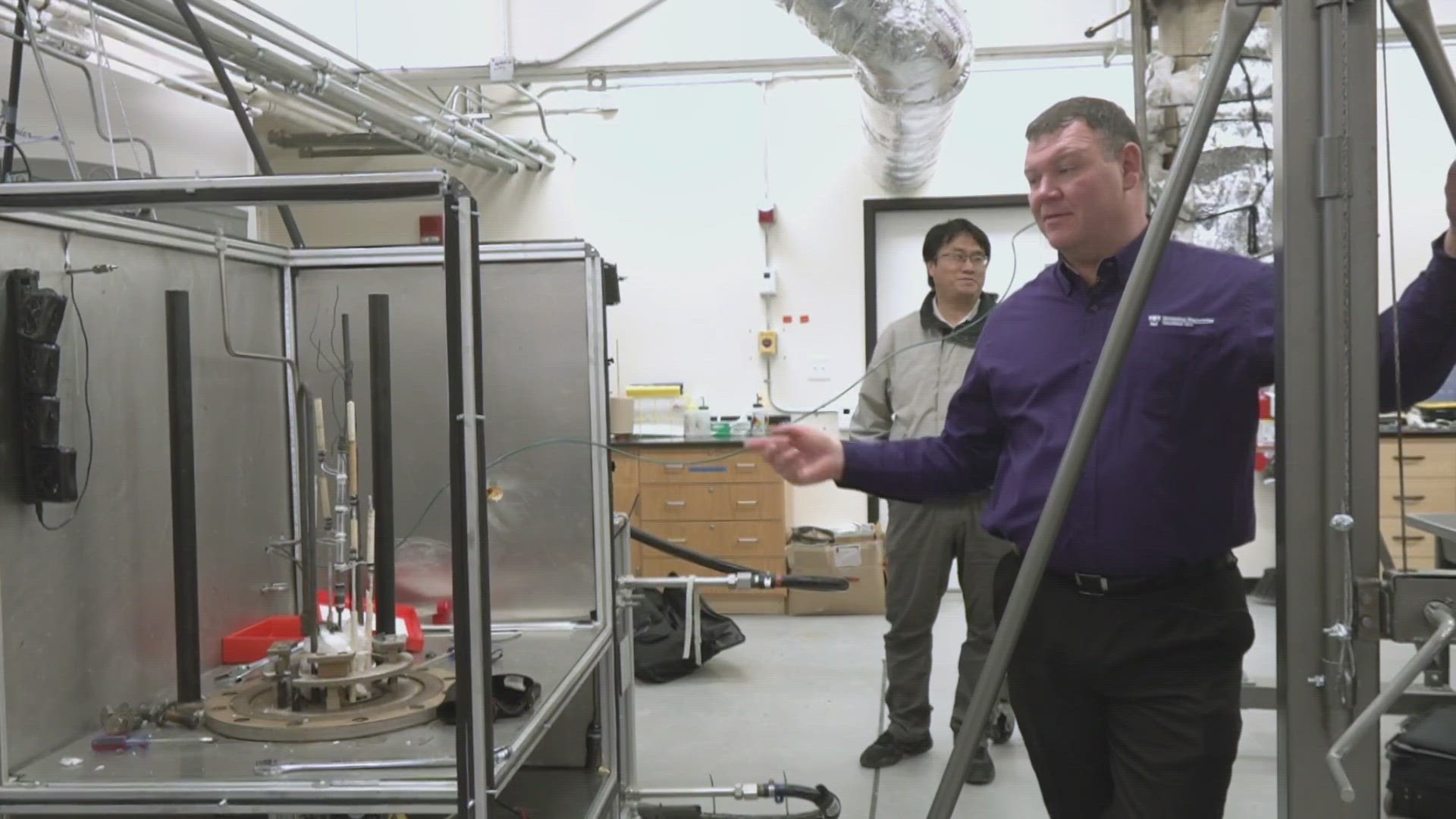COOKEVILLE, Tenn. — A team of universities, including Tennessee Tech University, will study zero-emission air travel as part of a NASA grant. Dr. Rory Roberts, a professor at the college, is studying using fuel cells to power aircraft.
Roberts said one airplane takeoff uses about 30 megawatts of power, equivalent to powering 6,000 homes. He said airplanes contribute about 12% of the world's carbon emissions.
Scientists say those emissions contribute to global warming, and it's why NASA is trying to make air travel emission-free.
Roberts said the fuel cells he's working with would take ammonia and convert it into electricity. The electricity would power motors on commercial aircraft.
"The only emission we have is water," Dr. Roberts said.
He said fuel cells use technology similar to batteries. However, in batteries, all of the energy is contained inside the battery. With a fuel cell, researchers can continue to pump in more ammonia, to add energy.
"The fuel cell is doing the conversion of those chemicals, but we can provide more fuel tanks to extend the range of the aircraft," Dr. Roberts said. "The good thing about that is you could refuel it, hopefully in minutes versus charging."
As part of the grant, Dr. Roberts and his students will test those fuel cells in conditions similar to those in airplanes when they fly. NASA's goal is to have zero-emission airplanes in flight by 2050, Roberts said.
Tennessee Tech is working on this project as part of an $8 million NASA grant. Tennessee State University, The Ohio State University, the University of Dayton, University of Washington - Bothell, Boeing, Raytheon and Special Power Sources are working on this project, too.

